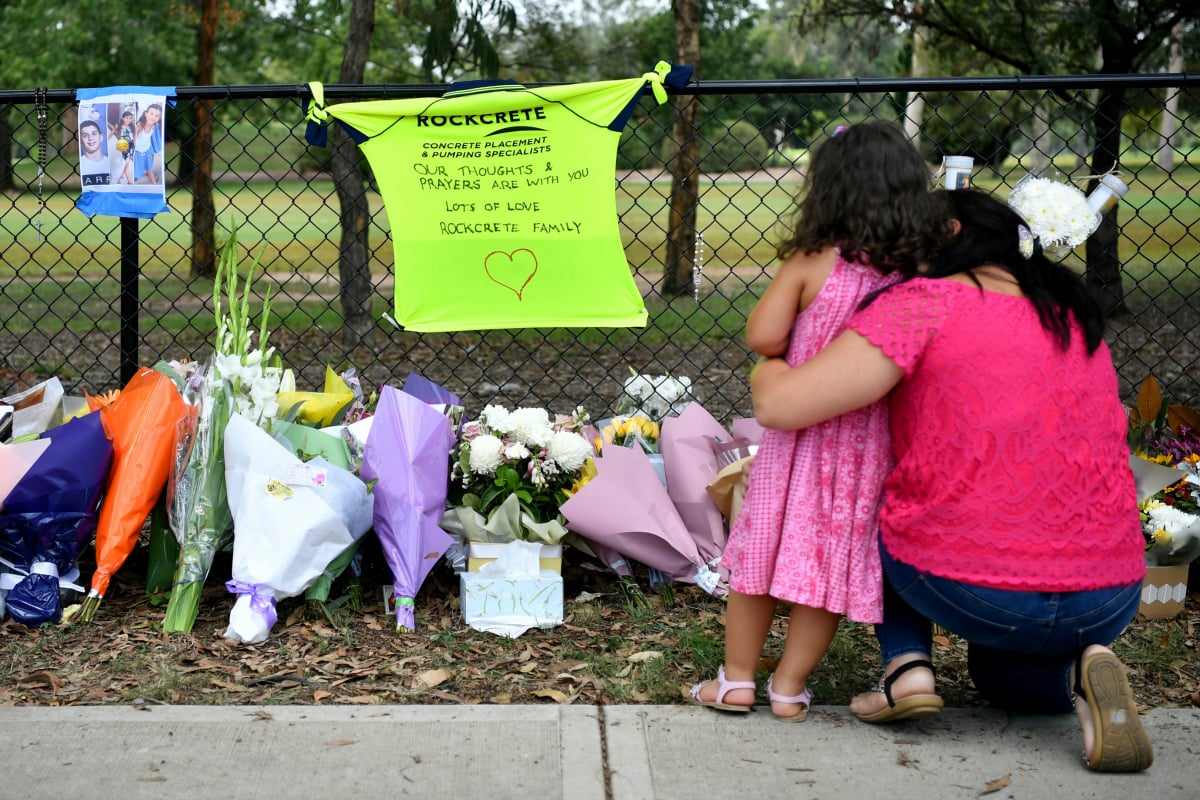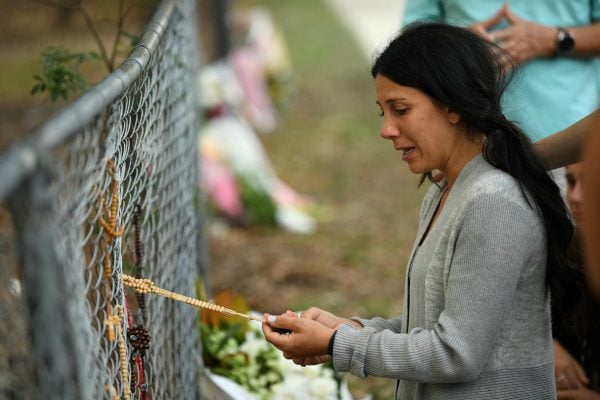
In Oatlands, a suburb in Sydney’s northwest, a makeshift memorial has been created by the side of a road. Flowers, cards and soft toys have been gently laid to mark the spot where four children took their last breath on Saturday evening.
All four were family; siblings Antony, Angelina and Sienna Geagea, aged 13, 12 and nine, and their 11-year-old cousin, Veronique Sakr. The group were on their way to the local shops to buy ice cream when, just before 8pm, they were fatally struck by a ute. Three other children were injured, one critically.
The man behind the wheel, a 29-year-old local, allegedly returned a blood alcohol reading three times the legal limit.
Watch: The father of the three children killed in Oatlands has a message for drivers.
The details of the tragedy have embedded themselves, not just in members of the Sydney community, but people all around the country. Certainly because of the pure tragedy of four young lives lost, the empathy for loved ones who’ve been left with only memories and empty beds. But also because of the element of circumstance; the ‘sliding-doors’ and painful what-ifs of it all.
Their deaths were freakish. A case of happening to be in that place in that moment, when that man, in that car, left the road in that particular way.



Top Comments
I can't express enough how very, very tragic this event is. My heart goes out to the families of everyone involved in this.
I fully get when people say - we need to make our individual decision not to get behind the wheel of a car after we have been drinking - I totally agree with this. You would think any rational, sane person would - it should go without saying.... however....
Alcoholism is a terrible disease - and it is a disease. When someone who is an alcoholic takes a drink - all the best intentions, willpower and the personal moral choices of that person are out the window. You see when an alcoholic takes a drink - they have no control over how many drinks after that they will take - it may be 2 or it may go on for days. This is the dilemma. Every alcoholic I have met (and I've met many) have sworn off it time and time again - the guilt and remorse that is felt the day after is immeasurable for many - this can range from too much money spent, arguments, loss of income, breakdown of family, drink driving and tragically what occurred to this beautiful family over the weekend.
I have met people who would do anything for their children - they would literally put their hand in boiling oil to protect their children - but they have a drink and all their best intentions are soluble in that glass of grog.
I am not saying that the driver in this case is an alcoholic, that is not for me to say, but if he is he needs to get the help to not pick up that first drink ever again. There are ways to do that - I personally know this to be 100% true. If anyone reading this feels that all their best intentions dissolve in alcohol and have ever woken in the morning full of fear, guilt remorse - then you need to do something to not take that first drink - ever again.
It is all well and good to say don't drink and drive - and for the majority of people who enjoy a social drink or two (or even 10) but don't fall into the category of alcoholic - then this is possible. If you are an alcoholic - then you need to never take that drink in the first place.
I will conclude in saying there needs to be less of a stigma on alcoholism - it is a serious disease - it kills people everyday - it destroys lives - but it is a disease - an illness - that can be relieved one day at a time.
I think the challenge is not only around alcoholism but also the drinking culture in Australia, especially binge drinking: going out on Friday evenings and getting smashed shouldn't be anyone's idea of a good time, or something that we encourage as society.
I vow to learn and act and hope the next person does and then the next. Doing this for the children and families of the Oatlands tragedy, the 56 fatalities in 2018 and countless more lives lost and affected in recent years.
I agree and believe we as a community have much to learn and importantly to do around this issue of a horrific alcohol related road toll, and even further to all harmful addictions that can lead to tragedy as in this heartbreaking case.
How important is our culture or more importantly our safety and well-being where people who drink to excess are not called out for it, not called out or their poor behaviour as a result, not called out or stopped for their intoxicated decisions such as getting into a vehicle to drive.
Where do we begin when someone evens thinks about getting into a car as an option at all (when under the influence, or even when they are sober). When did this even start? How did this young man come to this point?
Your last point and question is really powerful.
We need to do more so we as a community vow to actively stop the next person and prevent another tragic loss of life.